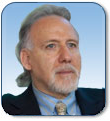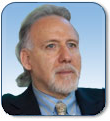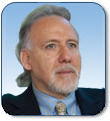
Director’s Desk, July 10, 2014
Opening of Airport Exhibit Last week, Katera Moore, CAIR-Philadelphia Executive Committee Member, and I had the honor to be invited

Opening of Airport Exhibit Last week, Katera Moore, CAIR-Philadelphia Executive Committee Member, and I had the honor to be invited

On Sunday, June 15, I was one of the speakers at an all-day Symposium at Masjidullah on the theme of “The Muslim American Community: Our Legacy and Our Destiny.”

Last week I travelled to Harrisburg to represent CAIR at the “Annual Connections Event” of the CRN-Community Responders Network, a coalition of local religious and secular leaders “who seek to build a more inclusive community by preventing and responding to acts of bias and intolerance in Central Pennsylvania.” The organization was started in 2008 following an incident that targeted a local Muslim family, and concerned individuals from different faith communities came together to stand with their Muslim neighbors.

CAIR’s mission is to provide legal services to the Muslim American community in matters of job discrimination and government abuse, whether related to security or immigration issues, as well to combat Islamophobia and educate the American public about Islam and Muslims. Consequently, CAIR deals almost exclusively with domestic issues, except when foreign issues become part of the domestic Islamophobic discourse, and therefore impact the public’s perception about Muslims in general.

I had the pleasure of delivering a lecture this past Monday, June 5th, on “Combating Islamophobia” at the University of Delaware in Newark, DE. The lecture was sponsored by the Department of Political Science and International Relations, the Center for Global and Area Studies, and the Islamic Studies Program. Over 60 students, both graduate and undergrads, and clearly of different ethnic and religious backgrounds, came out for the evening lecture. My topics included: Anti-Muslim prejudice in Western Civilization; the similarity of contemporary Islamophobia to 19th Century American anti-Catholicism and anti-Semitism; the rise of the Islamophobic network, and its funding sources, in post-9/11 America; and effective strategies of countering Islamophobia on campus and in the mainstream media.

 I was very excited that Imam Zaid Shakir, Co-Director of Zaytuna College in Berkeley, CA, and the keynote speaker at our Annual Banquet on March 15, devoted the first few minutes of his inspirational talk to the subject of climate change. For those new to the discussion of faith-based responses to this issue, the subject of climate might seem like an odd choice for a banquet presentation, and perhaps a not especially Islamic question. It was the opinion of Imam Zaid, as well as other contemporary Muslim scholars I have read in the last few years, that far from being irrelevant, climate change is the single greatest challenge facing humankind, and a profoundly Islamic issue for the following reasons.
I was very excited that Imam Zaid Shakir, Co-Director of Zaytuna College in Berkeley, CA, and the keynote speaker at our Annual Banquet on March 15, devoted the first few minutes of his inspirational talk to the subject of climate change. For those new to the discussion of faith-based responses to this issue, the subject of climate might seem like an odd choice for a banquet presentation, and perhaps a not especially Islamic question. It was the opinion of Imam Zaid, as well as other contemporary Muslim scholars I have read in the last few years, that far from being irrelevant, climate change is the single greatest challenge facing humankind, and a profoundly Islamic issue for the following reasons.

 On March 16th, the day after the Annual Banquet, Staff Attorney Ryan Tack-Hooper and I traveled to Washington DC to participate in CAIR’s Annual National Council Meeting. Over 80 staff and board members from CAIR’s 30 chapters attended. It was a wonderful opportunity to meet in person with people from around the country I have been emailing with for the past six months. During the meeting we shared ideas and strategies with each other on issues such as fundraising, grant applications, legal tactics, lobbying government officials, chapter growth, and building interfaith coalitions. Ryan and I were warmly received and made to feel part of the CAIR extended family.
On March 16th, the day after the Annual Banquet, Staff Attorney Ryan Tack-Hooper and I traveled to Washington DC to participate in CAIR’s Annual National Council Meeting. Over 80 staff and board members from CAIR’s 30 chapters attended. It was a wonderful opportunity to meet in person with people from around the country I have been emailing with for the past six months. During the meeting we shared ideas and strategies with each other on issues such as fundraising, grant applications, legal tactics, lobbying government officials, chapter growth, and building interfaith coalitions. Ryan and I were warmly received and made to feel part of the CAIR extended family.

 The Olympics and Sochi. As we all gather around the TV each evening to be thrilled by ice dancing and another exciting match of curling, we should remember the repressive conditions that Sochi’s 20,000 Muslims live under. Muslim leaders have been pushing for permission to build a new mosque since 1996. “I’m so tired of writing letters—whole files—it just drags on and on,” a Muslim organizer told the Norwegian news organization Forum 18 in 2006.
The Olympics and Sochi. As we all gather around the TV each evening to be thrilled by ice dancing and another exciting match of curling, we should remember the repressive conditions that Sochi’s 20,000 Muslims live under. Muslim leaders have been pushing for permission to build a new mosque since 1996. “I’m so tired of writing letters—whole files—it just drags on and on,” a Muslim organizer told the Norwegian news organization Forum 18 in 2006.

 Today’s The New York Times published a “Letter-to-the-Editor” that I wrote, responding to their editorial “Mixed Results for Mideast Democracy” of Jan. 16.
Today’s The New York Times published a “Letter-to-the-Editor” that I wrote, responding to their editorial “Mixed Results for Mideast Democracy” of Jan. 16.

 My appointment as Executive Director has continued to generate media attention. I was interviewed last week by Radio Sawa, a 24-hour, 7-day-a-week Arabic-language radio station broadcasting in the Arab world. The station is a service of the Middle East Broadcasting Networks, and is publicly funded by the U.S. Congress. Read the story (in Arabic) at RadioSawa.com. I was also interviewed on AslanMedia, the website of best-selling American Muslim author Reza Aslan.
My appointment as Executive Director has continued to generate media attention. I was interviewed last week by Radio Sawa, a 24-hour, 7-day-a-week Arabic-language radio station broadcasting in the Arab world. The station is a service of the Middle East Broadcasting Networks, and is publicly funded by the U.S. Congress. Read the story (in Arabic) at RadioSawa.com. I was also interviewed on AslanMedia, the website of best-selling American Muslim author Reza Aslan.
Ahmet Tekelioglu
Executive Director
See All Posts by Ahmet
Timothy Welbeck, Esq.
Civil Rights Attorney
See All Posts by Timothy
Asiyah Jones
Advocacy Director
See All Posts by Asiyah
Jacob Bender
Former Creative Director
See All Posts by Jacob
Guest Authors:
Durriya Shamsi
Nevan Hamid
Nada Abuasi
Irfan Patel
Views and opinions expressed in this blog belong solely to the author and do not represent the positions of institutions, organizations, or individuals that the author may be associated with in a professional or personal capacity, unless explicitly stated.

